main navigation start
Toggle navigation
- Resources
- Search
main content start
Search Filters
Sharex Sites List
Topics
Topics
- Accountability (3)
- Adolescents (36)
- Birth Registration (1)
- Breastfeeding (20)
- Cash Transfer (2)
- Child and youth participation (13)
- Child Health (234)
- Child labour (4)
- Child marriage (18)
- Child Poverty (10)
- Child Protection (49)
- Children in alternative care (5)
- Child Rights (17)
- Climate, Energy and Environment (47)
- Community engagement (89)
- Convention on Child Rights (2)
- COVID-19 (122)
- Data/Evidence (114)
- Disability (95)
- Disaster Risk Reduction (14)
- Discrimination (2)
- Early Childhood Development (55)
- Education (28)
- Emergency Response (2)
- Female genital mutilation (25)
- Gender (49)
- Gender Based Violence (17)
- HIV/AIDS (41)
- Humanitarian Response (10)
- Immunization (131)
- Infant and Young Child Nutrition (18)
- Innovation (35)
- Justice for children (4)
- Knowledge Exchange and Sharing (34)
- Knowledge Management (41)
- Legal identity (3)
- Maternal Health (55)
- Mental Health (26)
- Migrant and displaced children (12)
- Migration (10)
- Newborn Health (60)
- Nutrition (156)
- Online protection (1)
- Partnerships (8)
- Peacebuilding (2)
- Polio (6)
- Poverty (1)
- Psycosocial support (7)
- Sexual exploitation and abuse (11)
- Sexual Violence (9)
- Social Behaviour Change (58)
- Social Policy (20)
- Social Protection (15)
- Social service workforce (81)
- Sustainable Development Goals (8)
- Technology for Development (13)
- UNICEF Programming (37)
- UN Water Conference (6)
- Urban (8)
- Violence against children and women (15)
- Violence in schools (2)
- (-) Water. Sanitation and Hygiene (194)
Resource Type
Document Type
- Academic journal articles (including pre-print submissions) (0)
- Agreements (1)
- Case studies, lessons learned, field notes (84)
- Corporate reporting (0)
- Data set (0)
- Evaluations (4)
- Forms and templates (0)
- Guidelines/SOPs/checklists (7)
- Human Interest Stories (0)
- Major publication (flagship, advocacy etc.) (7)
- Meeting documents and reports (6)
- Mobile Application (0)
- Monitoring reports (1)
- Newsletters (0)
- None (2)
- Online learning/e-learning course (0)
- Other technical publications and reports (7)
- Policy brief/briefing notes/fact sheets/FAQs (12)
- Posters, brochures, pamphlets, flyers (2)
- Presentation (1)
- Research report (16)
- Situation analyses (2)
- Situation reports (6)
- Speeches and Statements (1)
- Staff working paper/discussion paper (2)
- Strategies and Frameworks (7)
- Systematic reviews, knowledge mappings, evidence synthesis (0)
- Technical note (4)
- Toolkit/Toolbox (3)
- Training materials (19)
- Video (0)
Country
Published Date Range

Case studies, lessons learned, field notes
A very centralized Department of Education (DepED) in the Philippines adopted a decentralized approach by giving all the responsibilities to school principals to adjust the school’s needs and implemen...

Technical note
Through Community Based Total Sanitation (known in Bahasa as Sanitasi Total Berbasis Masyaralat or STBM), many rural communities in Aceh province in Indonesia have been supported to eliminate Open Def...

Case studies, lessons learned, field notes
The COVID-19 pandemic has forced the restriction of movement and closure of borders in many locations in Myanmar. This coupled with lack of access and mobility to certain areas for security reasons po...

Training materials
This Field Note discusses efforts to enhance climate resilience in Cambodia’s Water, Sanitation, and Hygiene (WASH) services, emphasizing the need for climate risk assessments and solutions to ensure ...
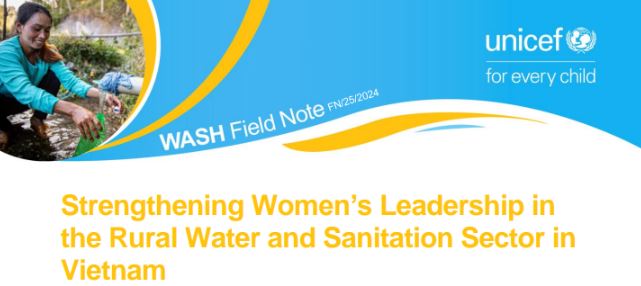
Case studies, lessons learned, field notes
This Field note highlights the significant underrepresentation of women in the water, sanitation, and hygiene (WASH) sector workforce in Vietnam, particularly in leadership roles. It notes that only 1...
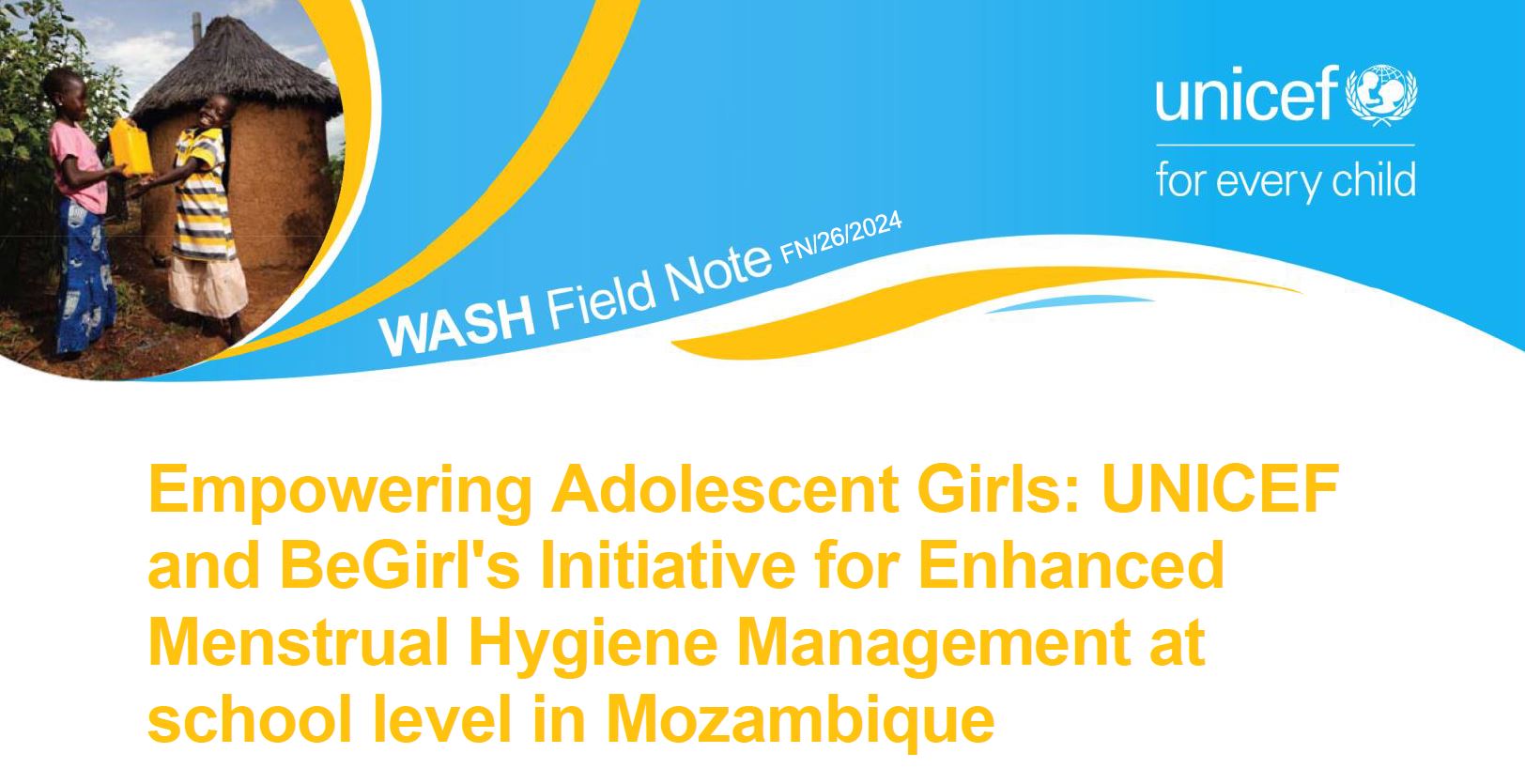
Case studies, lessons learned, field notes
UNICEF and BeGirl collaborated on a project to improve menstrual hygiene management (MHM) for girls in Mozambique, aiming to reduce school dropout rates by addressing MHM challenges and taboos. Over 3...
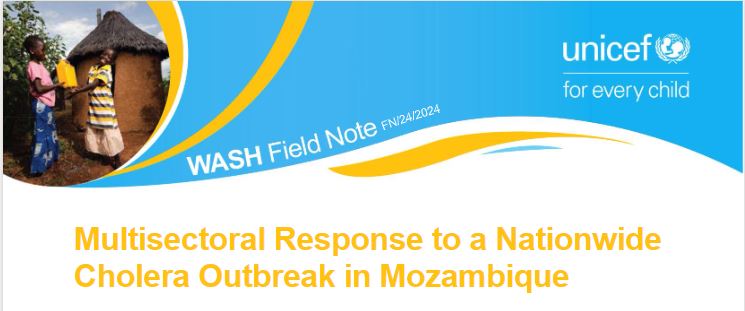
Case studies, lessons learned, field notes
This Field Note details Mozambique’s extensive cholera outbreak from September 2022 to June 2023, exacerbated by Cyclone Freddy in March 20231. It highlights the challenges faced and solutions impleme...
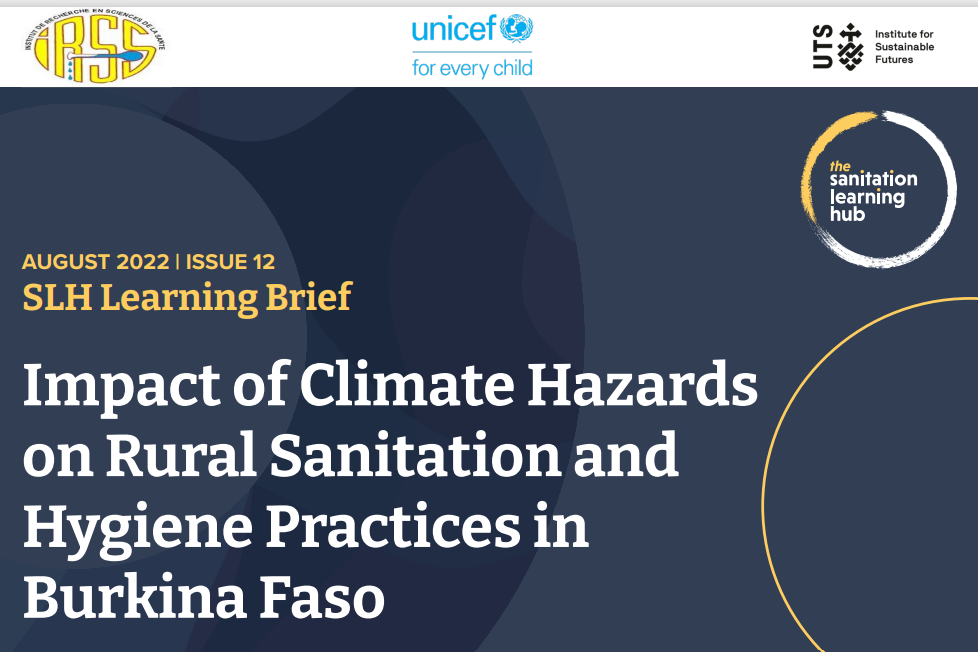
Case studies, lessons learned, field notes
This case study outlines the findings from Burkina Faso. In this country, the research was led by the Institut de Recherche en Sciences de la Santé (IRSS) in collaboration with UNICEF Burkina Faso, th...
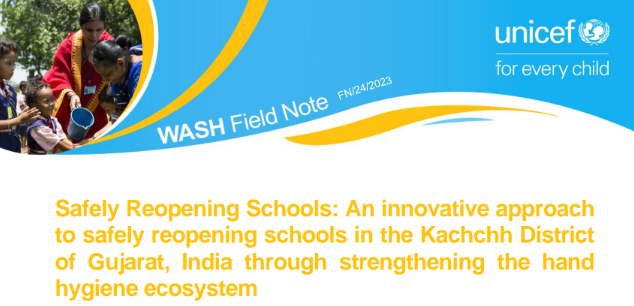
Case studies, lessons learned, field notes
The initiative examined the entire chain of safe hand hygiene (including infrastructure, behavior change, and capacity building) holistically and innovatively during this intervention to ensure susta...

